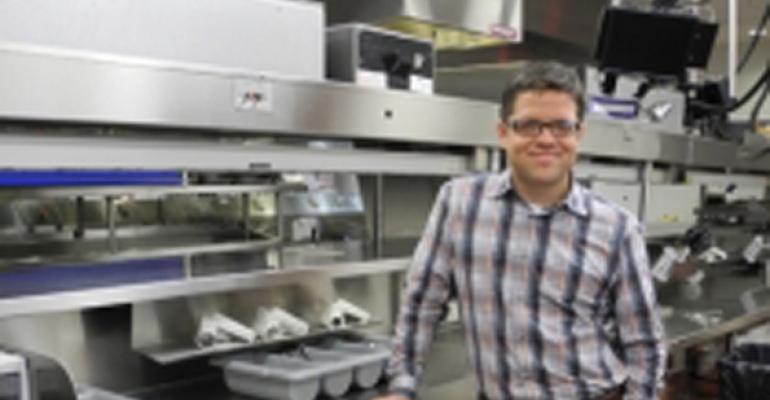Darden Restaurants Inc., which buys about $2.5 billion in food each year from 2,000 suppliers in 35 different countries for its seven casual-dining concepts, realizes that with great purchasing power comes great responsibility.
The owner and operator of Olive Garden, Red Lobster, The Capital Grille, LongHorn Steakhouse, Seasons 52, Bahama Breeze and Eddie V’s has created a multifaceted sustainability initiative that has resulted in the company using 17 percent less water and 8 percent less energy since its launch five years ago.
The food distributed to Darden’s more than 1,900 restaurants now travels 38 million fewer miles than it once did, and 28 percent of the waste from that food has been diverted from landfills. In fact, 10 million pounds of food that would have been thrown away was instead cooked, frozen and given to food banks, according to Darden sustainability manager Brandon Tidwell, a logistics expert who worked at FedEx before joining Darden.
RELATED
• Red Lobster names Chip Wade EVP of operations
• Darden to benefit from Yard House deal, analysts say
• More restaurant industry operations news
But of all of Darden’s food purchases, 31 percent is seafood, and that has remained the company’s sustainability focus.
“We have a vested interest in ensuring that the supply of seafood on which we rely remains available, affordable and meets the quality and safety standards we expect,” Darden says on its website, explaining its sustainability initiative.
Although many independent restaurants try to focus on locally sourcing wild-caught seafood, Darden has long supported farm-raised seafood as a founder of the Global Aquaculture Alliance.
“[Wild] seafood is one of the least expensive proteins from a water and energy standpoint,” Tidwell said, “but because the wild fishery population is not likely to increase, aquaculture’s the way to go.”
The practice has come under pressure from some conservation groups, who express concern about environmental degradation by densely populated seafood farms, and about animals escaping and competing with local species.
“There are issues of how you manage effluence and escapes," Tidwell said. "Aquaculture is not an easy pathway,” he added, noting that it's still the best pathway for Darden.
In the past year Darden became involved in an “integrated lobster aquaculture park” in Malaysia, where the company will support the first-ever commercial farming of lobster. The facility will be used to hatch and raise Panulirus ornatus, or spiny lobster, which is a clawless species indigenous to Southeast Asia. The lobsters will be raised to their full size and harvested.
The facility is expected to be operational in 2017, but production isn’t expected to reach scale until 2029, Darden said.
Darden has also funded sustainability efforts with wild species, however. In 2009 it gave $200,000 in seed money to help launch the Atlantic Lobster Sustainability Foundation, which supports and funds studies of lobsters’ environment and examines ways to maintain stocks of the crustacean.
And in 2011, Darden announced commitments to rebuilding troubled fisheries in the Gulf of Mexico — particularly wild stocks of grouper and snapper — through the Clinton Global Initiative.
“Because of our purchases, we have a lot of influence,” Tidwell said, adding that Darden’s trying to use that influence to improve the way fisheries are managed.
“We continue to work with areas all around the globe so that we’re moving toward areas of greater sustainability,” he said. “We’re trying to understand our long-term needs, and what the world’s going to need, and we’re trying to address that.”
Contact Bret Thorn at [email protected].
Follow him on Twitter: @foodwriterdiary





